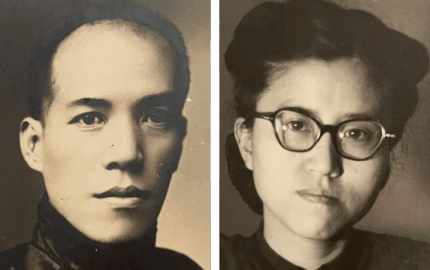Hodding Carter III, a journalist who began his career at his family’s newspaper in Greenville, Mississippi, later served in the State Department under Jimmy Carter and worked as an Emmy-winning broadcast journalist and commentator, died on May 11, 2023, in Chapel Hill, N.C. He was 88.
A Nieman Fellow in the class of 1966, Carter was the son of Hodding Carter Jr. who also studied at Harvard as a 1940 Nieman Fellow and won the 1946 Pulitzer Prize for editorials about racial, religious and economic intolerance.
Bob Giles, retired curator of the Nieman Foundation and Hodding Carter III’s Nieman classmate said: “He came from a family that courageously fought lonely battles against the segregationists in Mississippi. His dad (known as Big Hod) owned and edited the paper in Greenville, the Delta Democrat-Times. Hodding grew up under the stress of helping keep alive the single voice that challenged the racist community the newspaper served.
“In our Nieman class, he was elegant and forceful in our seminars and wonderful company. Later, as president of the Knight Foundation, he was supportive of the Nieman Foundation, funding, among other things, our efforts to provide sanctuary for international journalists who had escaped from places like Zimbabwe and Colombia. That mission led to a long relationship of Knight Foundation support for other Nieman initiatives.”
The crusade for racial justice
William Hodding Carter III (who didn’t use his first name), was born in New Orleans in 1935 and grew up in Greenville, Mississippi, where he graduated from high school after studying for a time at Phillips Exeter Academy in New Hampshire. He earned a bachelor’s degree from Princeton University in 1957, served for two years in the Marine Corps and returned to Greenville to begin working as a reporter at the Delta Democrat-Times.
It was there that Carter covered the civil rights movement and eventually took over his father’s roles as editor and publisher of the paper. During his time in the newsroom, he wrote thousands of editorials. The paper persevered in its coverage of racial inequality despite boycotts and threats from white supremacists.
Carter was co-chair of the Loyalist Democrats, a diverse group of civil rights advocates that won a credentials battle to unseat Mississippi’s all-white delegation at the Democratic National Convention in 1968.
In a 2006 Nieman Reports article he recalled: “Running a Mississippi newspaper that questioned racist verities was an invitation to blackballing, economic pressure, physical violence and — potentially rather than ever in fact — death. As the civil rights movement began to crest and the federal government stirred from its 80-plus years of moral slumber, white Mississippi — first my Dad’s and then mine — reacted like a baited bear. Its aim was to repel the outsider, punish the white dissenter, and shove the Black man back into the ditch.”
He continued: “Real courage consists of looking your fear in the eye, then soldiering on. Dad was afraid much of the time. I was afraid much of the time, too… Mortal men and women set course, encounter adversity, are terrified — and press on. Not gods or superheroes — mere men and women. The enemy can be as determined and vicious and lethal as the white racists of Mississippi a half-century and less ago — or even worse or even less. What is required, what Dad showed me, is that you suck up your gut and do the best you can.”
Carter’s father and mother, Betty Werlein Carter, had co-founded the Delta Star in 1936. They later purchased the Star’s competitor, the Daily Democrat-Times, and merged the papers to form the Delta Democrat-Times, where she worked as a feature writer.
A new career direction
Carter worked on the successful presidential election campaign for Jimmy Carter (no relation) in 1976 and later moved to Washington to become assistant secretary of state for public affairs under Cyrus Vance. In that role, he gained national recognition as chief spokesman during the lengthy Iran hostage crisis, giving updates on the situation during televised briefings. It was Carter who had convinced Vance to allow television cameras into the daily briefings.
Carter went on to work as a broadcast journalist, first as the anchor for “Inside Story” a media analysis program on PBS, where he won four Emmy Awards and an Edward R. Murrow Award, and later in a variety of roles for public affairs shows on PBS, ABC, CBS, CNN and the BBC.
From 1985 to 1998, he served as president and chairman of MainStreet, a TV production company that specialized in public affairs television, and was a Washington-based opinion columnist for The Wall Street Journal. He also was a contributor to The New York Times, The Washington Post and other newspapers and magazines.
In support of journalism
Carter took on a new role as president and CEO of the John S. and James L. Knight Foundation in 1998. During his tenure, he helped the organization’s endowment grow to almost $2 billion and significantly increased its grants to journalists and news organizations.
He also taught journalism at the University of Maryland in the 1990s and beginning in 2006, taught leadership and public policy at the University of North Carolina at Chapel Hill, where he lived.
He was the author of two books “The South Strikes Back” (1959), about White Citizens’ Councils formed to resist racial integration, and “The Reagan Years” (1988).
A Nieman love story
When Carter attended the Nieman Foundation’s 80th anniversary in 2018, he was reacquainted with journalist and author Patricia O’Brien from the Nieman class of 1974. As Nieman curator Ann Marie Lipinski recounted, romance soon blossomed and the pair were married at Lippmann House, home of the Nieman Foundation, in November 2019. Their mutual friend, retired Boston Globe columnist Ellen Goodman, also from the Nieman class of 1974, officiated.
Carter is survived by his wife; four children, Hodding Carter IV, Catherine Carter Sullivan, Margaret Carter Joseph and Finn Carter; three stepchildren, Mike Derian, Craig Derian and Brooke Derian; a brother, Philip, also a journalist; and 12 grandchildren.



